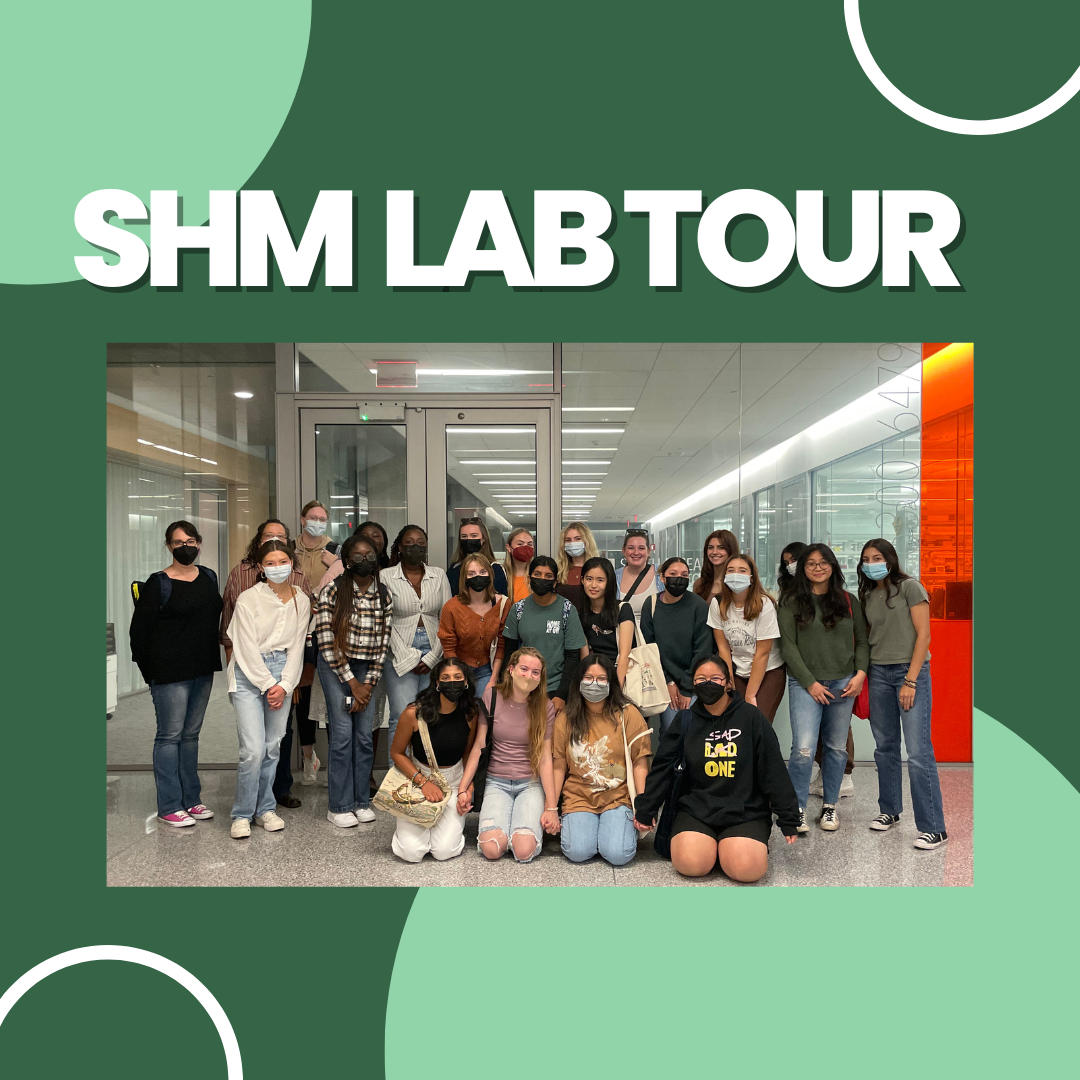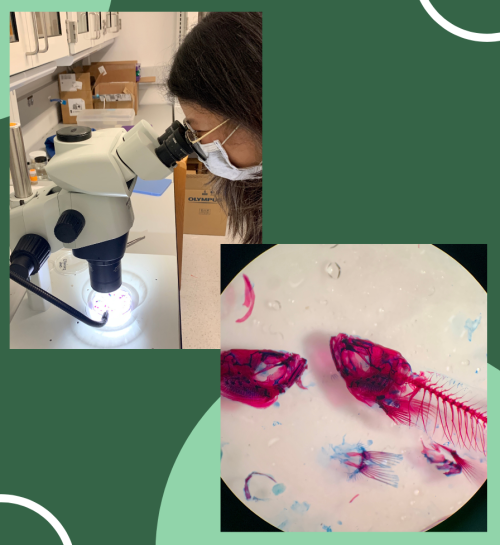The Women’s Leadership Program’s Science, Health, and Medicine cohort recently had the opportunity to tour two labs and host a Women in Research panel at GW. Three SHM students shared their reflections and takeaways from the night.
Researchers (L-R) Brianna Attey Mouanjo, Dr. Patricia Hernandez, Sydney Nelson, and panel moderator Loretta Wang.
“The Women in Research panel and lab tours seriously changed my perspective on research and its capabilities. The three panelists were studying very different topics at different points in their lives while sharing a common curiosity and passion for learning more. I think that a lot of us have always looked at research as a requirement to put on a resume or an intermediate to our future careers. At least for me, I have grown up with the notion that research is simply a prerequisite to getting into medical school. Even the three women joked about how their parents wanted them to go into science to become doctors. However, something about the nature of researching itself, discovering explanations for Dr. Hernandez and searching for possible solutions for Sydney Nelson, led them to pursue research as more than something to say they have done. Seeing their dedication to their work reminded me that participation in research should be driven by your desire to learn more about the topic and contribute something to society.” -- Aanya Sachdeva
“I was surprised to find out about the broad range of research that is currently being conducted at GWU. There are ongoing studies ranging from topics like infectious diseases such as Monkeypox and Zika Virus, to fishes and their vertebral structure. This variety makes me excited to work in a lab, as I know that at GW, I will have the opportunity to study whatever topics I find interesting and want to know more about. It also excited me to hear that the panelists worked in labs as undergraduates, like Bri Attey (SHM 2021-22), and did not have to wait until they were in postgraduate school.” -- Julia Faria
SHM student Loretta Wang (L) and graduate student Sydney Nelson (R) examine an agar plate with bacterial
growth.
“One of the things I learned about conducting research is how informal it is to get started. Every person that spoke on the panel discussed how when they originally got involved in undergraduate research, it was through talking to professors or volunteering to be a part of a research study. This was great information because so many people have tried to apply to get involved in research or work in a lab, even though it has only been two months, and when people get rejected, they think they aren’t worthy or able to get involved, but it turns out that many positions aren’t filled that way.” -- Lauren McCutcheon
SHM student Angela Nguyen peers into a microscope in the laboratory of Dr. Patricia Hernandez. At right, a view of what she saw: fish specimens stained red and blue.





